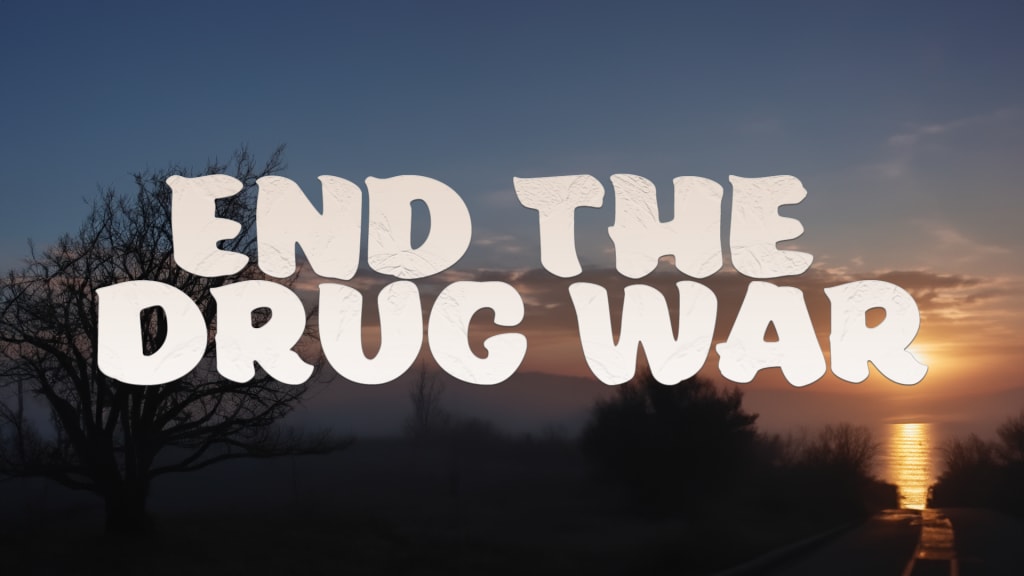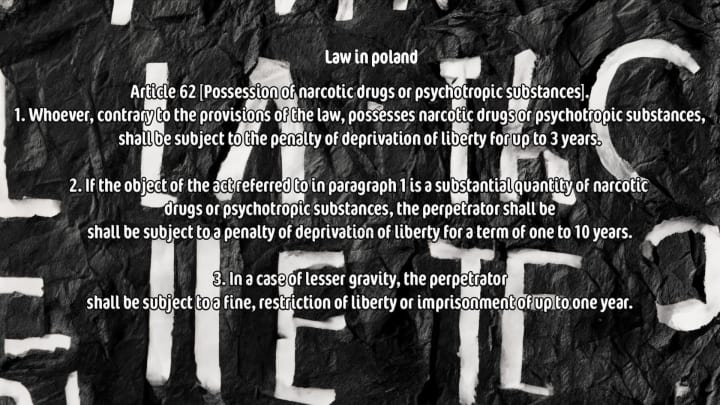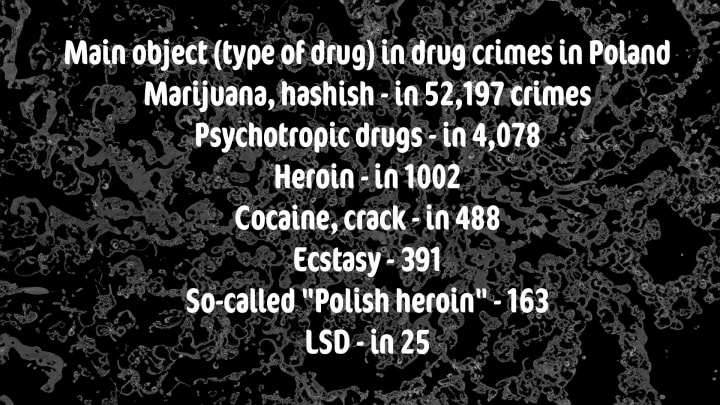The futility of prohibition. Criminal law against drugs and drug addiction
The disaster of drug prohibition.

Drug-related crime is a global challenge for societies around the world. The traditional approach of prohibition and repression of drug users has not been successful. One country that has introduced an innovative approach to the problem is Portugal. Decriminalization and a focus on treating addiction instead of punishment have yielded revolutionary results there. In this article, we will present an analysis of drug-related crime statistics and the impact of Portugal's new drug policy.

Drug crime statistics through 2021 in Poland show not only the size of the problem, but also the effects of policies to punish drug users
High number of drug crimes: Data shows that there were 74,535 drug crimes in Poland in 2011. This figure is certainly surprising and indicates the extent of the drug problem in the country. The increase in drug crimes can be interpreted as a result of policies to punish users.
Individual action by offenders: the analysis shows that drug offenders most often act individually (91.3% of cases). This means that they are mainly drug users who are punished for possession of prohibited substances. This approach, which focuses on punishing users, does not work and does not solve the problem of drug abuse.

The main crime is illegal drug possession: Data shows that the main crime in the drug category is illegal possession. This means that policies focused on punishing users have little effect on reducing drug-related crime. Punishing people for drug possession does not solve the problem, but only increases the number of crimes in this category.
A high percentage of drug crimes in the overall spectrum of criminal offenses: Drug offenses accounted for 9.4% of total criminal offenses. This is a significant figure that shows that the drug problem has a significant impact on criminality in Poland. Focusing on punishing drug users not only generates costs for the justice system, but also diverts attention from other important crime-fighting areas.
Costs associated with policies to punish users: Policies to punish drug users generate significant costs for society. This includes costs associated with arrests, prosecution, trials, incarceration and rehabilitation. These resources could be redirected to more effective activities such as prevention programs, education, addiction treatment and social reintegration.
An analysis of data on drug crimes in Poland through 2021 indicates the need to revise policies for punishing drug users. Punishing users brings much worse social consequences, generates significant costs for society and does not bring the expected results in the fight against the drug problem. Instead of focusing on repressive policies, an approach based on treatment, rehabilitation and support for addicts should be considered. The example of Portugal, which has decriminalized drug possession and diverted resources to treatment, can serve as an inspiration for Poland and other countries in tackling the drug addiction problem.
Drug policies introduced in Portugal in 2001 based on decriminalization and a focus on addiction treatment have had numerous positive effects
Decrease in drug crimes: The introduction of the new policy in Portugal has resulted in a marked decrease in drug-related crimes. Prior to 2001, the percentage of drug crimes in the total number of crimes was 14%. After the introduction of the new policy, it dropped significantly to 6.8% in 2019. This demonstrates that the decriminalization of drug possession for individual use has had benefits in terms of reducing drug crime.
Reducing HIV infections and overdose deaths: Portugal's policies also focus on reducing drug-related harms, such as HIV infections and overdose deaths. Access to needle exchange programs, HIV testing and other harm reduction services has contributed to a significant reduction in HIV infections among drug users. Also, the number of overdose deaths has declined because addicts have access to medical care, monitoring and treatment, which can prevent fatalities.
Shifting the focus to therapy and support: One of the main effects of Portugal's policies has been a shift in resources from repression to therapy and support for addicts. Instead of punishing drug users, the Portuguese have focused on providing adequate therapy and support for people with drug problems. This has increased the availability of therapeutic, rehabilitation and reintegration services, enabling addicts to recover and return to normal social functioning.
Decrease in recidivism and social reintegration: addicts who receive help and support in Portugal are more likely to successfully reintegrate into society. Drug policies aimed at assistance rather than punishment promote the treatment of addiction as a health problem. With appropriate treatment programs, social and community support, people with drug problems have a chance to return to a full-fledged social life. This contributes to reducing recidivism and improving the quality of life for addicts and the community as a whole.

Assuming an analysis of drug crime statistics in Poland through 2021, and looking at the effects of Portugal's drug policy, we can come to the clear conclusion that drug prohibition is not working. Portugal, thanks to a bold approach based on decriminalization and a focus on addiction treatment, has seen a marked decrease in drug-related crimes, a reduction in HIV infections, and a greater chance of social reintegration for addicts.
The apparent benefits of Portugal's policies make a strong case for revising past approaches to the drug problem. Punishing drug users not only generates high costs for the criminal justice system, but also does not contribute to solving the problem effectively. Focusing on therapy, rehabilitation and support for addicts opens the way to recovery and reentry into society.
In Poland, observing the high number of drug crimes and their rising costs, it is worth considering the introduction of a more humane and effective approach, following the example of Portugal. Shifting the focus from repression to treatment and support can benefit both addicted individuals and society as a whole.
It is important that drug policies take into account aspects of health, harm reduction and social reintegration. Decisions based on facts, statistics and positive results achieved in other countries, such as Portugal, should form the basis for creating more effective and humane strategies in combating the drug problem.
The future of drug policy should emphasize protecting public health, providing assistance to addicts and minimizing the social negative effects. Through open debate, scientific research and following successful examples, we can strive to build a more responsible and effective system for responding to the drug problem.






Comments
There are no comments for this story
Be the first to respond and start the conversation.